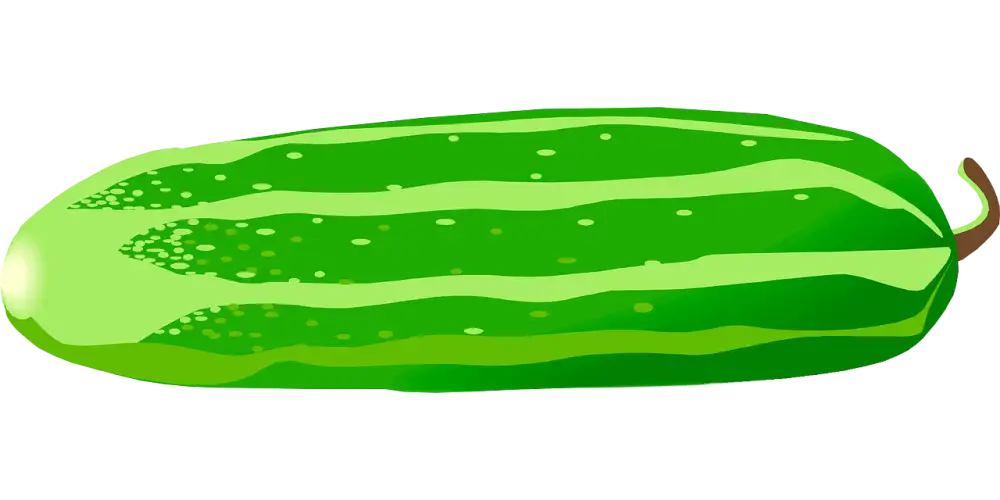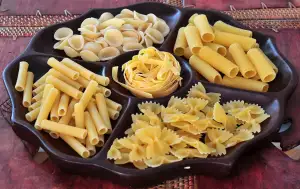Preserving Freshness: Can You Freeze Cucumbers? Discover the Secrets in our Recipes Section

Cucumbers are a versatile and refreshing vegetable that adds a crisp bite to salads, sandwiches, and even cocktails. But what if you have an abundance of cucumbers and want to preserve their freshness for later use? Can you freeze cucumbers without compromising their taste and texture? In this article, we delve into the world of freezing cucumbers to uncover the secrets behind preserving their natural goodness. Whether you're a home cook or a culinary enthusiast, join us in discovering the possibilities of freezing cucumbers in our Recipes Section.
Understanding the nature of cucumbers and their water content
Cucumbers are known for their high water content, which contributes to their refreshing and hydrating qualities. On average, cucumbers are composed of about 96% water. This makes them a popular choice for salads and as a cooling ingredient in beverages. However, the high water content also poses a challenge when it comes to freezing cucumbers. Freezing causes water molecules to expand, which can lead to cell damage and a loss of texture. Therefore, it is important to understand the nature of cucumbers and their high water content before attempting to freeze them.
The impact of freezing on cucumber texture and taste
Freezing cucumbers can have a significant impact on their texture and taste. Cucumbers are made up of approximately 95% water, which is responsible for their crispness and refreshing flavor. However, when cucumbers are frozen, the water inside them expands and forms ice crystals. This can cause the cucumber cells to rupture, resulting in a softer texture and loss of crunchiness. Additionally, freezing can also affect the taste of cucumbers. The freezing process may alter the natural enzymes present in cucumbers, leading to a slightly bitter or bland flavor. It's important to consider these changes before deciding to freeze cucumbers for long-term storage.
Methods for freezing cucumbers effectively
1. Slicing: Slice the cucumbers into thin rounds or spears, depending on your preference. This will help them freeze more evenly and make them easier to use in recipes later.
2. Blanching: Blanching the cucumber slices or spears in boiling water for a few seconds before freezing can help preserve their color and texture. After blanching, immediately transfer them to an ice bath to stop the cooking process.
3. Flash freezing: Lay the blanched cucumber slices or spears in a single layer on a baking sheet lined with parchment paper. Place the baking sheet in the freezer for a few hours until the cucumbers are completely frozen. This method prevents them from sticking together and allows you to easily portion out what you need later.
4. Vacuum sealing: If you have a vacuum sealer, consider using it to package your frozen cucumbers. Removing all the air from the packaging helps prevent freezer burn and keeps the cucumbers fresher for longer.
5. Freezer bags or containers: Alternatively, you can place the frozen cucumber slices or spears in freezer-safe bags or containers, making sure to remove as much air as possible before sealing them tightly.
By following these methods, you can ensure that your frozen cucumbers retain their freshness and quality when stored for future use in recipes.
Tips for preparing cucumbers before freezing
Before freezing cucumbers, it's important to prepare them properly to ensure the best results. Start by washing the cucumbers thoroughly and removing any dirt or debris. Next, peel the cucumbers if desired, as the skin can become tough and bitter after freezing. If you prefer to keep the skin on, make sure to scrub it well. After peeling, slice the cucumbers into your desired shape and size. Some people prefer thin slices for salads or sandwiches, while others may prefer larger chunks for soups or stews. Finally, blanch the cucumber slices in boiling water for a few seconds before transferring them to an ice bath. This process helps preserve their color and texture. Once cooled, pat dry with a paper towel and pack them into freezer-safe containers or bags, making sure to remove as much air as possible before sealing. Following these tips will help ensure that your frozen cucumbers retain their freshness and flavor when thawed later on.
Storing frozen cucumbers for long-term use
Storing frozen cucumbers for long-term use is essential to maintain their quality and freshness. Once you have prepared and frozen your cucumbers, it is important to store them properly to prevent freezer burn and maintain their flavor. The best way to store frozen cucumbers is in airtight containers or freezer bags. Make sure to remove as much air as possible before sealing the container or bag. Label the containers with the date of freezing to keep track of their freshness. Store the cucumbers in the coldest part of your freezer, preferably at 0°F (-18°C) or below. By following these storage guidelines, you can enjoy the taste and texture of your frozen cucumbers for up to 12 months.
Creative ways to use frozen cucumbers in recipes
Freezing cucumbers is a great way to reduce food waste and have them on hand year-round. However, it's important to note that freezing cucumbers will change their texture, making them softer. This means they won't be ideal for eating fresh in salads or sandwiches.
How Freezing Affects Cucumbers
Cucumbers have high water content. When frozen, this water expands, causing the cell walls to break down. This results in a softer, mushier texture upon thawing.
Best Ways to Use Frozen Cucumbers
Don't despair! Frozen cucumbers are actually quite versatile and perfect for a number of recipes where a crunchy texture isn't essential. Here are some ideas:
- Cool and refreshing smoothies: Blend frozen cucumbers with yogurt, mint, and a splash of lime juice for a revitalizing summer smoothie.
- Flavorful cucumber-infused water: Add slices of frozen cucumbers to your water pitcher for a subtle hint of cucumber flavor that will keep you hydrated all day long.
- Vibrant salads: Thawed frozen cucumbers can add a crisp texture and burst of freshness to your favorite salad recipes.
- Zesty gazpacho soup: Puree thawed cucumbers with tomatoes, bell peppers, garlic, and herbs for a chilled soup that is perfect for hot summer days.
- Tasty pickles: Use frozen cucumbers to make quick pickles by marinating them in vinegar, spices, and herbs for a tangy and crunchy snack.
- Creamy cucumber dip: Thawed cucumbers can be blended with Greek yogurt, dill, garlic, and lemon juice to create a delicious dip for veggies or pita chips.
- Refreshing sorbet: Freeze pureed cucumbers with sugar and lemon juice for a unique and refreshing sorbet that will delight your taste buds.
- Cucumber-infused cocktails: Frozen cucumber slices can be used as garnish or muddled into cocktails like mojitos or gin and tonics for an extra burst of flavor.
Tips for Freezing Cucumbers
- Wash and dry the cucumbers thoroughly.
- Peel the cucumbers if desired (leaving the peel on is fine too).
- Slice, dice, or puree the cucumbers according to your intended use.
- Spread the cucumbers in a single layer on a baking sheet lined with parchment paper to freeze them quickly and prevent sticking.
- Once frozen solid, transfer the cucumbers to airtight containers or freezer bags.
- Label and date the containers for easy identification.
- Frozen cucumbers can last for up to 12 months in the freezer.
Conclusion
Freezing cucumbers can be a practical way to extend their shelf life and enjoy their refreshing flavor throughout the year. While freezing does alter their texture, it opens up a world of culinary possibilities. From smoothies and soups to dips and cocktails, there are countless ways to incorporate frozen cucumbers into your favorite recipes.
Published: 23. 01. 2024
Category: Recipes



